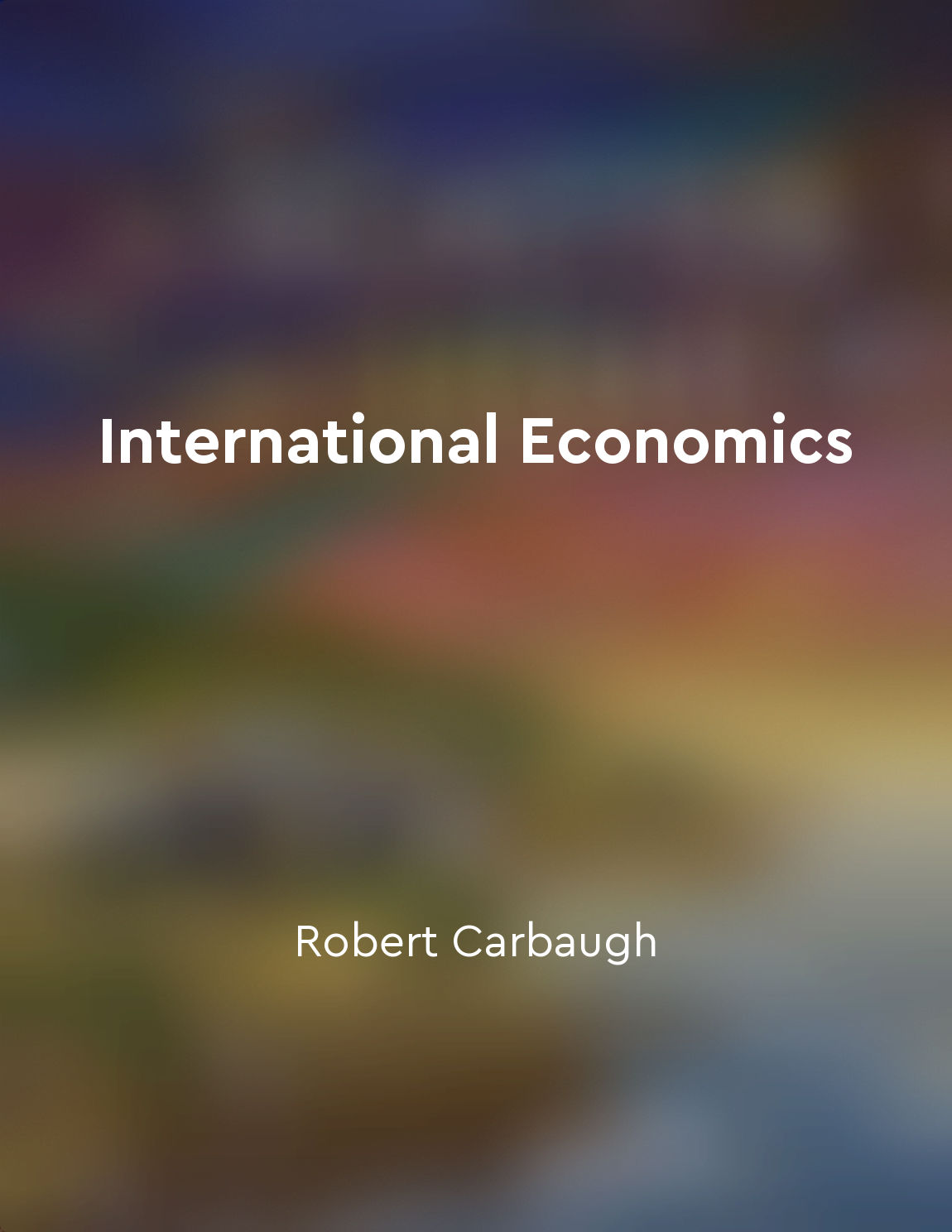International trade relies on stable currency values from "summary" of International Money and Finance by Michael Melvin
Stable currency values play a crucial role in facilitating international trade. When currencies are volatile, businesses face uncertainty in their transactions. This uncertainty can lead to increased costs and risks, making it harder for companies to engage in cross-border trade. For example, imagine a U. S. company that wants to import goods from Europe. If the euro's value suddenly decreases against the dollar, the U. S. company would have to pay more for the same amount of goods. This sudden increase in costs could disrupt the company's supply chain and erode its profit margins. Conversely, if the euro's value increases against the dollar, the European supplier may find it harder to sell their goods in the U. S. market. This could lead to a decrease in demand for European products, harming both the supplier and the U. S. consumers who rely on these goods. In order to avoid these risks and uncertainties, businesses prefer to conduct trade in stable currency environments. Stable currency values provide a predictable and reliable framework for conducting international transactions. This stability allows businesses to plan and budget effectively, reducing the likelihood of unexpected costs and disruptions. Moreover, stable currency values also promote investor confidence. When currencies are stable, investors are more willing to invest in foreign markets, knowing that their returns will not be eroded by currency fluctuations. This increased investor confidence can lead to greater capital flows and economic growth, benefiting both trading partners.- Stable currency values are essential for promoting smooth and efficient international trade. By providing a predictable and reliable environment for transactions, stable currencies help businesses reduce costs, manage risks, and foster economic growth.
Similar Posts

Protectionism can lead to trade disputes
Protectionism, which involves government policies that restrict international trade, can have significant implications for trad...
Government intervention affects markets
Governments play a crucial role in influencing markets through various interventions. These interventions can take many forms, ...
Risk budgeting determines how much risk to allocate to each asset class
Risk budgeting is a crucial aspect of institutional investment management as it involves determining the amount of risk that sh...

Ratios help analyze profitability
Analyzing profitability is a key aspect of assessing the financial health of a company. Ratios play a crucial role in this anal...
Economic indicators influence currency values
Economic indicators provide key insights into the health and performance of a country's economy. These indicators include data ...

The World Trade Organization regulates international trade agreements
The World Trade Organization, or WTO, plays a crucial role in overseeing and regulating international trade agreements. This or...

Crossborder investments raise issues related to political risk
When companies invest in foreign countries, they face the challenge of navigating through various political risks. These risks ...
Stay disciplined and stick to your trading strategy
Successful forex trading requires a high level of discipline and the ability to stick to a well-thought-out trading strategy. T...

